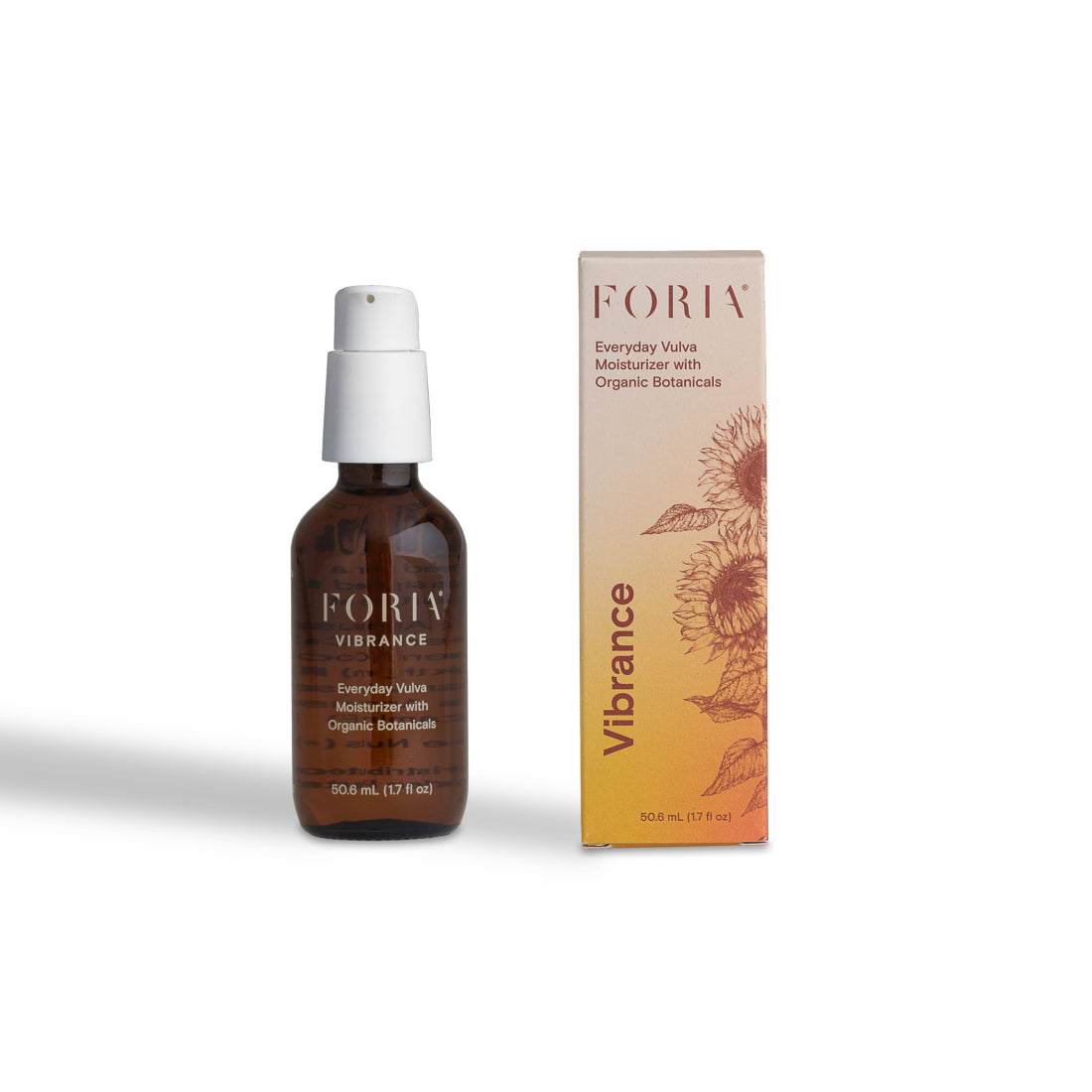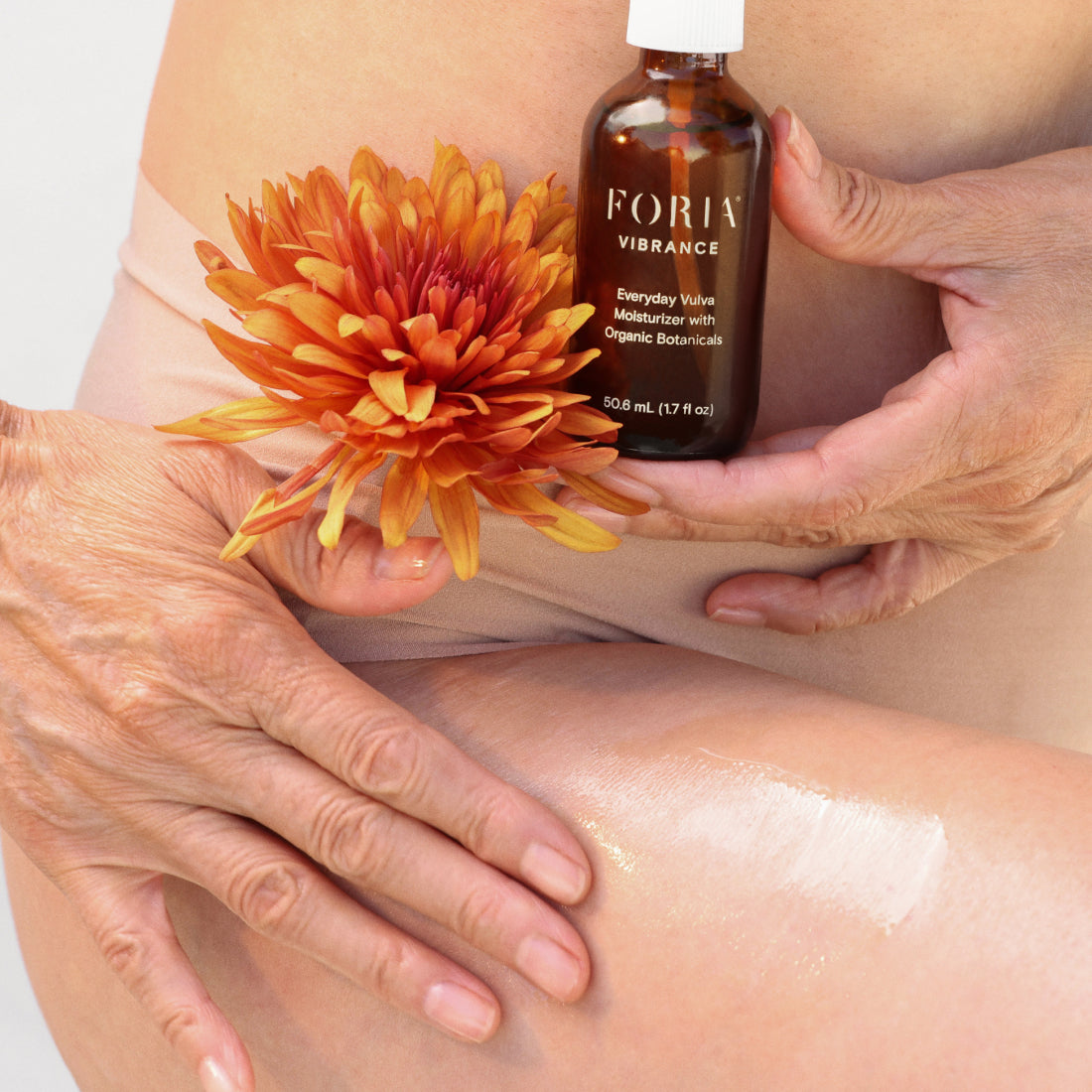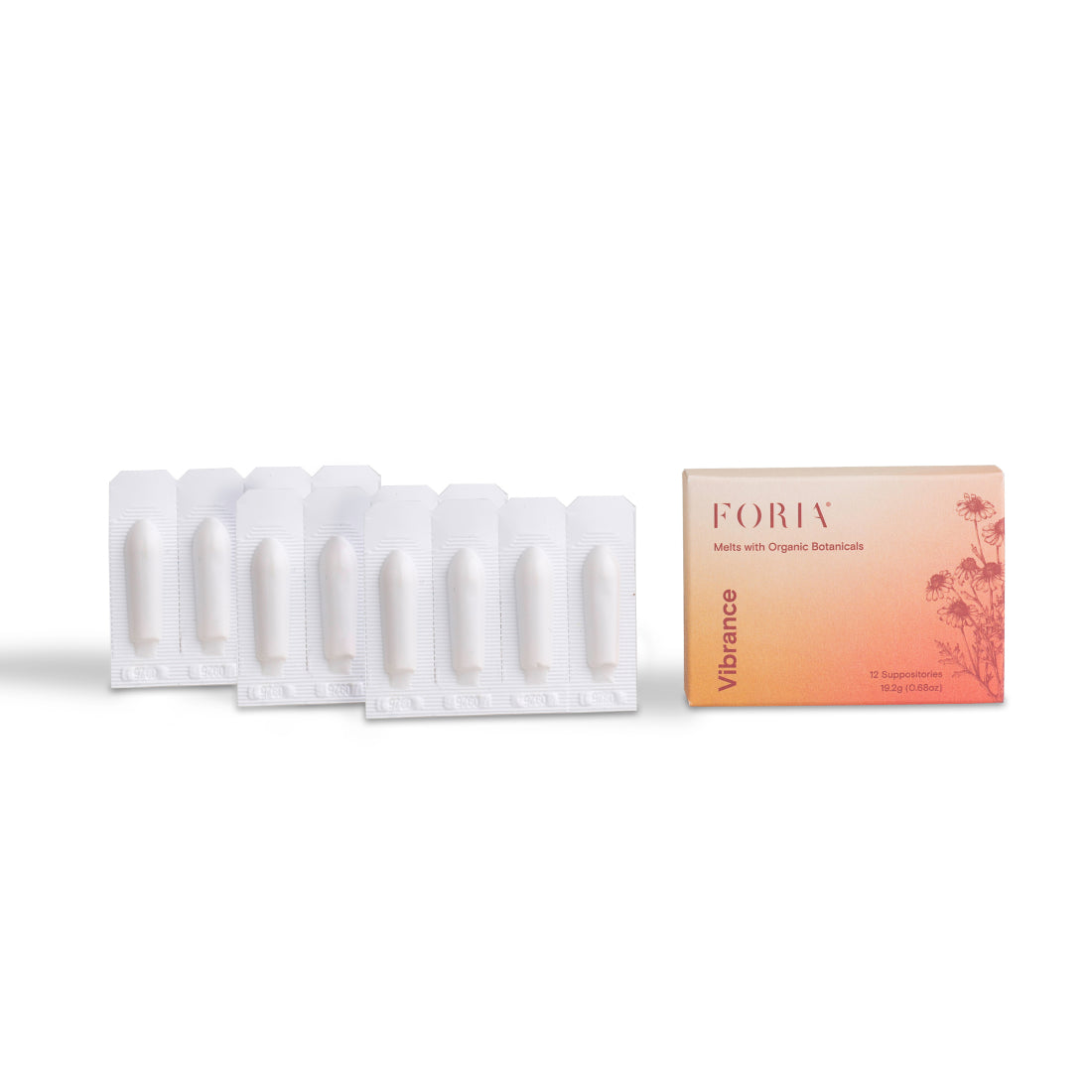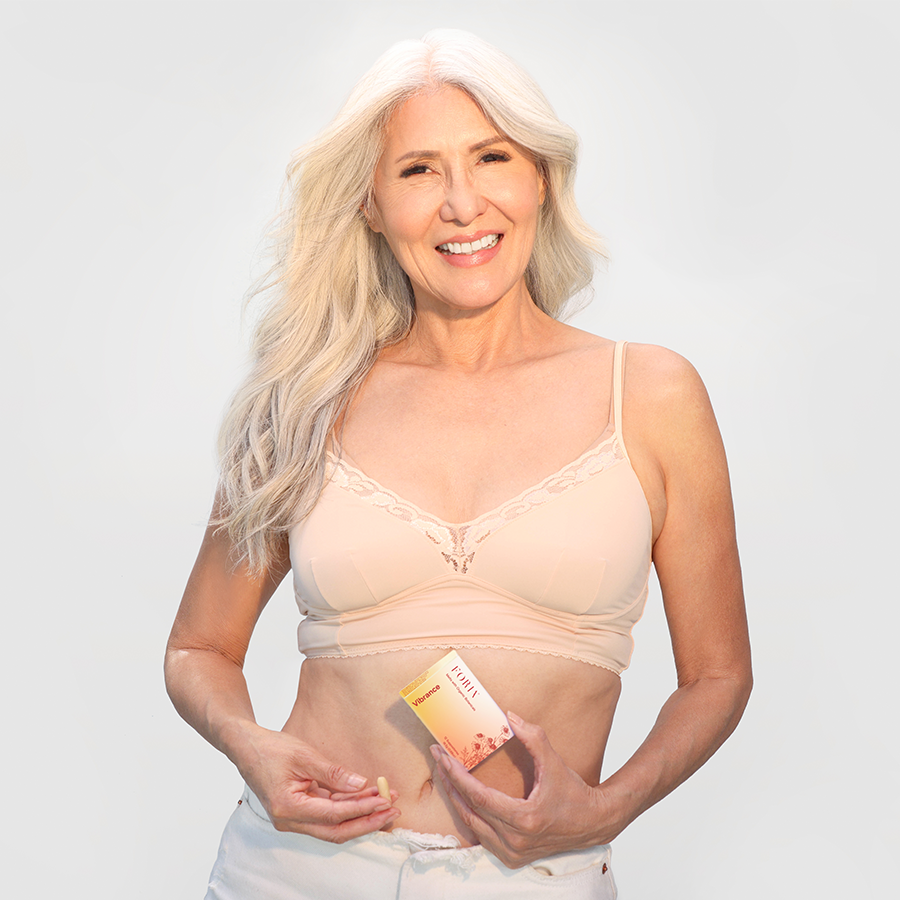Feeling a little parched? Contrary to what you might have heard, vaginal dryness is incredibly common and can occur for a variety of reasons. It’s usually associated with menopause, and most products intended to help are marketed toward older women, but so many factors are in play when it comes to our bodies, and vaginal dryness can come and go at any age.
While vaginal dryness is rarely talked about, when it is, it’s usually pretty discouraging.
So we're here to help destigmatize this very common experience and let you know that dryness is nothing to be ashamed of – and more importantly, there are ways to help your body get the waters flowing when the time is right.
What Is Vaginal Dryness?
The vagina basically has a life of its own (which is why we love it and honor it so much), including its own unique PH range, microbiome, and varying ranges of secretions depending on your cycle, hormones, and blood flow happening in the genitals.
It secretes moisture to coat the vaginal walls, creating an alkaline environment that is primed for reproduction. In the modern day and age, we also know this moisture supports pleasure and comfort during sex (even when reproduction is not on the table).
However, when the cells and glands that secrete moisture stop doing their thing, vaginal dryness ensues, which can lead to pain in the vaginal tissue during sex as well as general discomfort, often making sexual pleasure feel out of reach.
What Causes Vaginal Dryness?
Vaginal dryness is largely connected to changes in the hormonal production of estrogen. When estrogen levels drop, the vaginal walls thin, which often means less moisture, lubrication, and elasticity.
When there’s less estrogen, there’s also less sexual arousal — because this queen hormone is responsible for boosting blood flow to the vagina. While menopause is the most obvious cause, there are many circumstances that can affect the body’s natural hormonal balance, making your vagina feel like a point of tension rather than a sensual pleasure center.
Other causes include:
Postpartum
Many women experience postpartum symptoms not dissimilar to menopause — hot flashes, night sweats, and vaginal dryness. That’s because estrogen and progesterone levels drop like crazy after giving birth. Breastfeeding also decreases estrogen levels so as to allow for milk production.
Stress, Anxiety, and Depression
Moods aren’t just abstract feelings or mental states. Factors like stress and anxiety directly affect hormone production. Stress causes the body to release excess amounts of cortisol, which is a hormone that keeps the body in fight-or-flight mode. This overproduction of cortisol interferes with estrogen and oestrogen production, resulting in low libido and vaginal dryness.
Medication
Medications that treat allergies, colds, and asthma can have the unfortunate side effect of vaginal dryness due to an overall drying effect on the body. Also, some forms of birth control and antidepressants, like SSRIs, can contribute. If you’re experiencing sexual side effects from your medication, that’s a big deal!
Pleasure is essential to wellness, so don’t try to gut it out. Consult with your healthcare provider about adjusting your regimen if you need to. Cancer treatments can also immediately lessen the amount of estrogen produced in the ovaries, causing vaginal dryness as a side effect.
Lack of Arousal
This seems obvious, but women have been told by society that their bodies should always be ready to have sex rather than understanding that dryness can be a signal that they’re not aroused (and therefore not lubricated enough to enjoy pleasurable sex).
Our bodies aren’t always ready, and sometimes they take a little while to warm up. Being patient and giving yourself time to deeply explore what feels good can help you access your arousal – mental and physical.
HRT
Sometimes, a lack of vaginal lubrication can be due to low estrogen. If dryness and soreness is impacting your sex life, hormone therapy (HRT) that increases the hormone estrogen can help. But there’s a flip side to that: HRT can be one of the causes of vaginal dryness, too.
If you’re taking testosterone to address a low sex drive, depression, or other medical issues as many women do, this could be the culprit. Testosterone can decrease your natural lubrication and even lead to vaginal atrophy. Vaginal atrophy doesn’t just make sex uncomfortable — even walking can begin to feel unpleasant at that point. Hormone levels are essential to your overall sexual health and function, so hormone replacement can have a huge impact.
But vaginal dryness isn’t just about women’s health. HRT can also be medically necessary for the gender transition process. Luckily, it’s possible to use estrogen-enriched creams or tablets to help restore balance to your vagina without harming gender-affirming testosterone treatments.
How To Treat Vaginal Dryness
It’s inevitable that the vagina will experience changes as we get older, but that doesn’t mean there aren’t ways to prevent dryness and even treat it.
- Functional medicine. If you’re experiencing symptoms of chronic vaginal dryness pre-menopause, consider working with a holistic practitioner like a Naturopath, Functional Medicine Doctor, and/or Traditional Chinese Medicine Doctor. Working with a practitioner who can look at your hormonal levels from a 360-degree purview will allow you to tackle dryness from the root cause.
- Diet and exercise. More and more, we’re learning the effects diet and exercise have on modulating our immune systems and keeping inflammation at bay. Consider researching an anti-inflammatory diet that can help complement efforts to balance your hormones naturally.
- Lifestyle. Are you tired of people telling you to meditate? It does get a little repetitive these days – but meditation is actually one of the most effective (and free) ways to naturally lower stress and anxiety levels over the long haul. Having a daily practice — even just for five minutes — can significantly boost your mood and lower inflammation.
-
Mental health. If you’ve read Emily Nagoski’s sexual bible, “Come As You Are,” you already know that your mood is no small part of your overall sexual well-being. If you’re stressed, depressed, or otherwise not at your best mentally, no amount of foreplay, creams, or vaginal moisturizers will lead to great sexual intercourse. Things outside of the bedroom can affect your sex life — a bad week at work, family problems, or a fight with a friend can all act as “brakes,” which turn you off and ensure you’re nowhere near in the mood.
- Vaginal dryness could also be caused by unresolved issues in your relationship with your partner or past traumas that are getting triggered when you try to get down and dirty, creating brakes you may not be aware of. First and foremost, you’ll need to find ways to manage your emotions, whether resolving a conflict in your life, finding a way to better manage stress at work, speaking to a therapist, or just having a much-needed vent session with your best friend. It can also be useful to look to the flip side of brakes.
- “Accelerators” help to rev your body up and turn you on, which can help with vaginal dryness. But if your mental health isn’t in the best shape and it’s impacting your sexual health, finding a new accelerator may not be enough to resolve your vaginal dryness.
- Lubrication. Needing lube is nothing to be ashamed of. Foria is a big fan of using lube, with or without vaginal dryness, to help deepen sexual intimacy, enhance arousal, and let you go for longer during sex. Our Sex Oil with CBD is as simple and clean as it comes (pun intended) with 400mg of broad-spectrum CBD and MCT coconut oil. To combat daily dryness, try our Vibrance Melts. They come in a 12-pack and are formulated for daily use, rather than for intimacy.
While vaginal dryness can be uncomfortable, it presents a meaningful opportunity to listen to your body’s natural rhythms. Not only can you sense what might be out of balance, but your vagina is also an incredible resource for checking in with your state of mind, subconscious emotional cues, and overall well-being.
Conclusion
There are so many different things that may be causing your vaginal dryness. Hormone changes, emotional flux, or even medical conditions ranging from urinary tract infections to yeast infections — not to mention improper care like douching or using scented soaps — can all cause dryness.
While a visit to your gynecologist may be in the cards, especially if you have vaginal discharge or are prone to UTIs in addition to your dryness, there are over-the-counter treatment options available. Silicone-based lubricants, oil-based lubricants, or water-based lubricants can be a great way to alleviate painful sex and transform your vaginal area into the place of fun and pleasure you remember rather than a problem you need to solve.
P.S. If you’re feeling dryness in your whole body, not just vaginally, may we recommend our Everyday Body Oil?
Sources:
Q&A: Gynecologic and Vaginal Care for Trans Men | San Francisco Aids Foundation
Testosterone Therapy in Women: Does It Boost Sex Drive? | Mayo Clinic
Featured in this article
Want more? Sign up for our newsletter
By entering your email, you are agreeing to our terms and conditions and understand our privacy policy.













